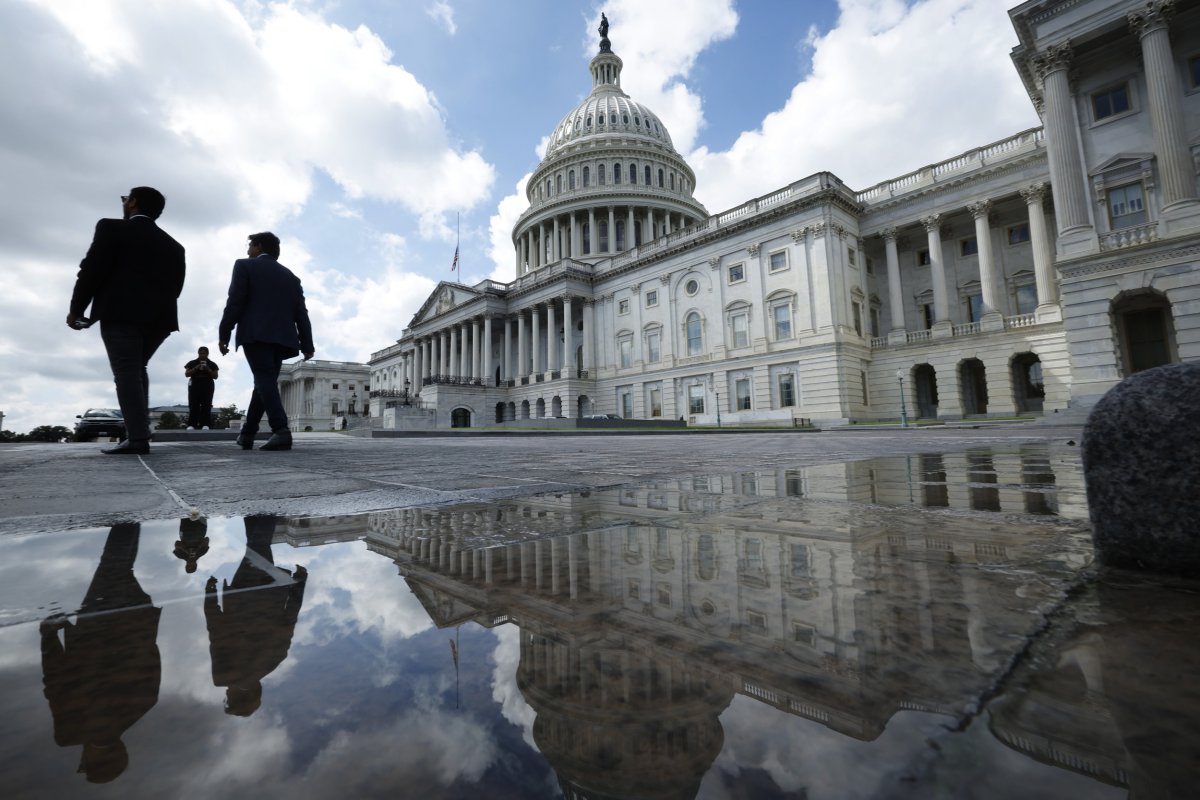-
In War-Torn Nations, Trump’s Travel Ban Brings a New Hardship - 17 hours ago
-
As Trump Says He’s Stamping Out Antisemitism, He Advances Similar Tropes - June 3, 2025
-
How a former factory worker rose to South Korea’s presidency - June 3, 2025
-
$105 Million Reparations Package for Tulsa Race Massacre Unveiled by Mayor - June 1, 2025
-
Israel Bars Arab Foreign Ministers From High-Level West Bank Visit - May 31, 2025
-
Central California carjacking was an insurance scam, investigators say - May 31, 2025
-
U.S. Pauses Exports of Airplane and Semiconductor Technology to China - May 29, 2025
-
Missing California influencer found dead near Arizona hiking trail - May 28, 2025
-
A Vermont Start-Up Was Close to Becoming Profitable. Then the Tariffs Hit. - May 27, 2025
-
Russia Intensifies Attacks on Ukraine as U.S. Steps Back - May 26, 2025
Senators are Already Worried About the Next Government Shutdown Threat
Congress found temporary relief last night from the looming threat of a November 18 government shutdown after the Senate voted 87-11 in favor of approving a House proposal to extend funding beyond the winter holidays.
However, senators are already worrying about the threat of another potential shutdown given the fractious state of the House of Representatives.
“I’m concerned about it,” Republican Sen. Shelley Moore Capito of West Virginia, a member of the GOP leadership, told Newsweek. “We couldn’t get there by the end of September. We couldn’t get there November 17.”
While this Congress has been productive in drafting the 12 individual spending bills needed to fund the federal government, it has struggled to get those bills across the finish line with votes on the floor. This has now forced lawmakers to extend current funding levels twice after failing to meet the two funding deadlines Capito referenced.
The West Virginia senator, who serves on the Appropriations Committee, which is responsible for the 12 bills, also expressed concern over Speaker Mike Johnson’s ability to unify House Republicans around a deal to fund the government in 2024.

Photo by Chip Somodevilla/Getty Images
Johnson’s ascent to the speakership came following the October ousting of former Speaker Kevin McCarthy, which was triggered in part due to McCarthy’ decision to partner with Democrats to extend the September funding deadline to the November 17 date.
On Tuesday, the House voted 336-95 in favor of Johnson’s proposal offering “laddered” deadlines, whereby four of the bills extend through January 19 and the remaining eight through February 2. More Democrats supported the measure than Republicans, who opposed the motion due to its lack of spending cuts and other conservative policy priorities.
Texas Rep. Chip Roy, chair of the Freedom Caucus, told CNN the move amounted to “strike 1 and strike 2” against Johnson. If the speaker cannot secure the demands that Roy and his hard right allies desire, rejecting a bipartisan deal to avert a shutdown could be the only way for him to save face and avoid the fate of McCarthy.
“I think the negotiation is going to be a tough negotiation around the laddered approps bills,” Democratic Sen. Tim Kaine of Virginia told Newsweek. “I would rather that we had not pushed it into early 2024, but the one virtue of pushing it into early 2024 is it gives us the ability to right now focus on the supplemental, which I think is really important.”
Generally, when the spending deadlines are extended, Congress extends the deadlines of all 12 bills to right before its holiday recess at the end of December, which makes Johnson’s proposal all the more unusual.
However, as Kaine notes, in addition to funding the government, Congress must also address President Joe Biden’s request for supplemental funding for the wars in Israel and Ukraine that also calls to allocate dollars toward Taiwan, humanitarian efforts, and enforcement at the southern border.
This issue could prove to be as contentious for Johnson, if not more, as securing a federal funding deal. While nearly all House Republicans support aid for Israel, almost half have opposed aiding Ukraine, despite the effort still holding strong GOP support in the Senate.
Johnson could face serious opposition and burn his remaining goodwill should he forward such a measure, nonetheless Democratic leaders are calling on him to move forward.
“If the speaker is willing to work with Democrats, and resist the siren song of the hard right in the House, then we can avoid shutdowns in the future and finish the work of funding the government,” Senate Leader Charles Schumer said following the passage of last night’s measure. “Keeping the government open is a good outcome, but we have a lot of more to do after Thanksgiving.”
Uncommon Knowledge
Newsweek is committed to challenging conventional wisdom and finding connections in the search for common ground.
Newsweek is committed to challenging conventional wisdom and finding connections in the search for common ground.
Source link










